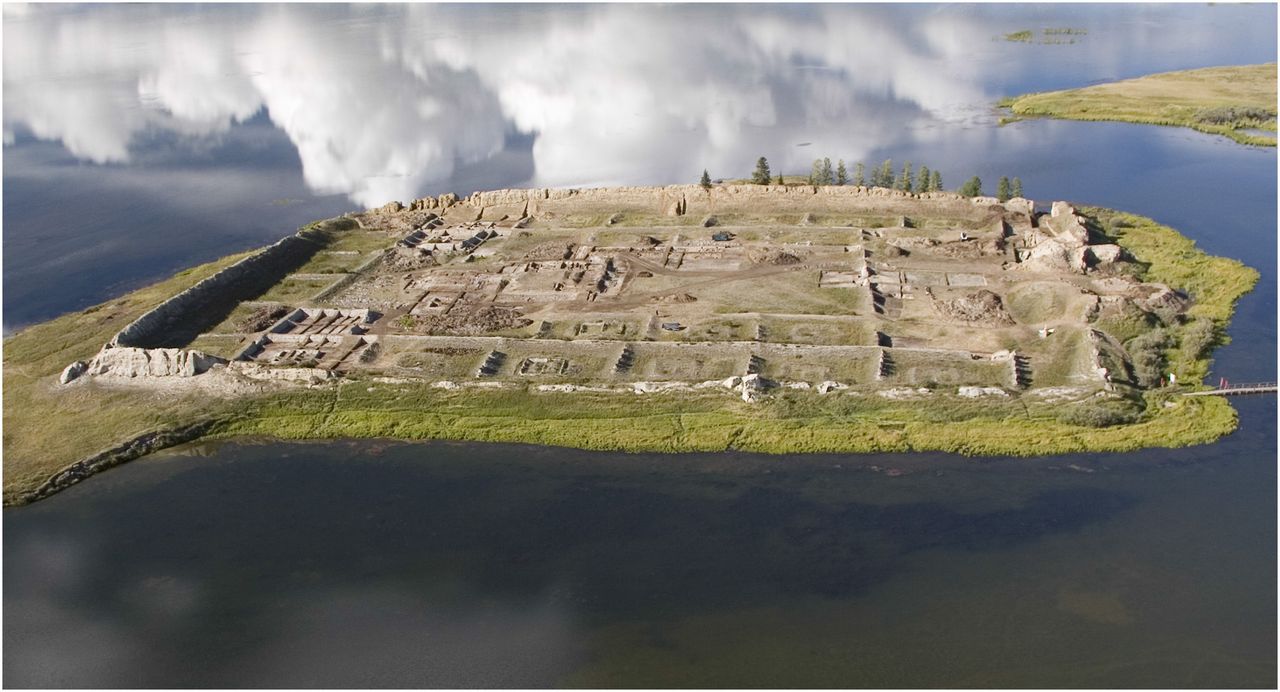UKRANT: Experts in koolstofdatering lossen eeuwenoud raadsel op

Niemand wist waarom het mysterieuze fort van Por-Bazjyn in Siberië was gebouwd en waarom het nooit gebruikt werd. Deze week kwamen RUG-wetenschappers met de oplossing van het raadsel, dankzij een nieuwe methode van koolstofdateren.
Door Christien Boomsma - 8 juni om 21.01 uur.
Het eilandfort van Por-Bazjyn, gelegen in de permafrost van Siberië, is misschien wel net zo mysterieus als Machu Picchu. Het is minder bekend dan zijn Peruaanse broertje, maar de vragen rond het enorme bouwwerk van klei, stammend uit de achtste eeuw en omgeven door twaalf meter hoge muren, houden wetenschappers al decennia bezig. Wie heeft het gebouwd? Was het een paleis? Een fort? Een klooster? En waarom zijn er geen haarden in aangebracht? Waarom zijn er geen gebruikerssporen?
In een artikel dat deze week verscheen in PNAS, geven wetenschappers van de RUG het definitieve antwoord door de bouw te dateren in de zomer van 777. Ze maakten daarvoor gebruik van een nieuwe methode, waarbij ze zoeken naar pieken van de isotoop koolstof-14 in de jaarringen van bomen. Die uitschieters zijn veroorzaakt door zeldzame zonnevlammen, waarvan er eentje voorkwam in het jaar 775 en een ander in 994.
